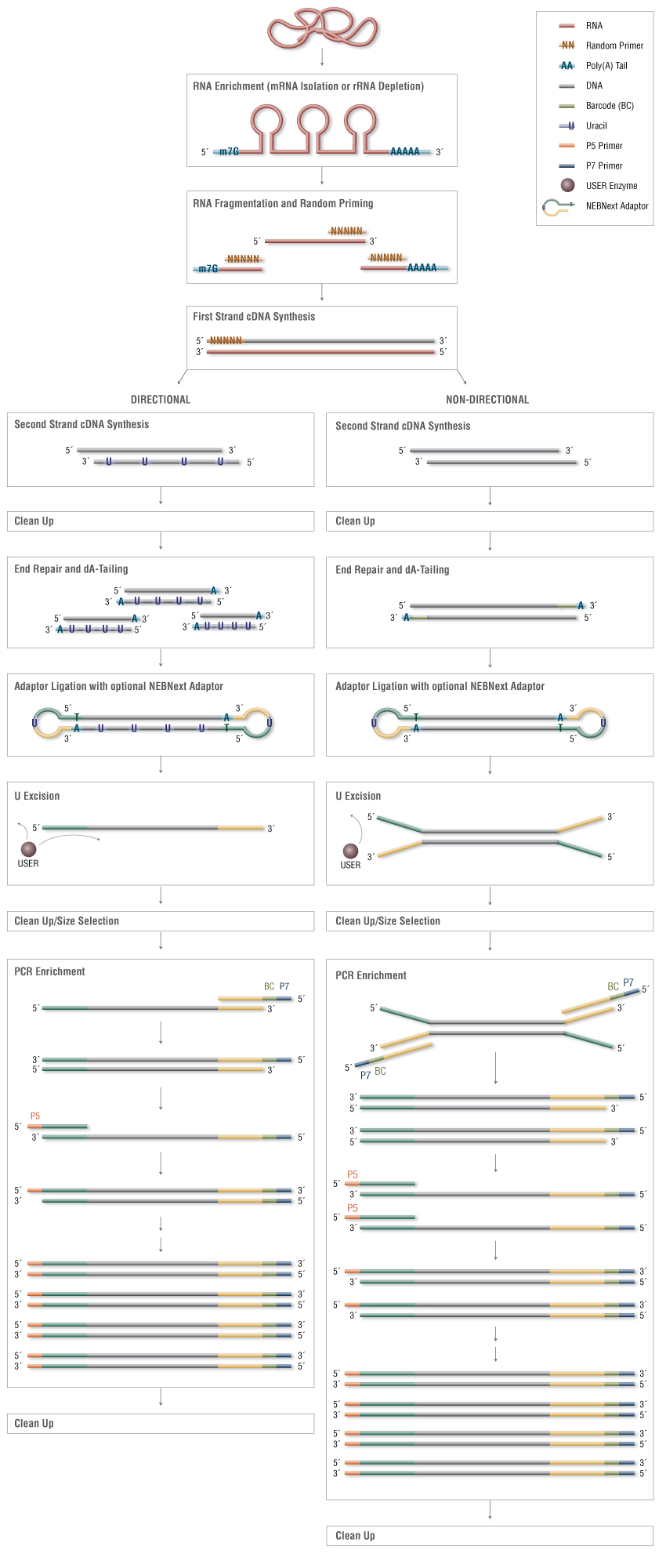
mRNA Library Preparation
Return to RNA Library Prep for IlluminaIn general, the first step in library preparation of mRNA is fragmentation. Random hexamer primers are then added and will hybridize to complementary RNA sequences. In the presence of a reverse transcriptase and deoxynucleotide triphosphates (dNTPs) (A, T, G, C), the mRNA becomes the template for the synthesis of the first complementary strand of DNA (first strand synthesis). The DNA-RNA hybrids synthesized during first strand cDNA synthesis are converted into full-length double-stranded cDNAs. The primers for synthesis of the second strand cDNA are create by RNase H, which introduces nicks into the RNA moiety of the cDNA-RNA hybrids. E. coli DNA Polymerase I (NEB #M0209) extends the newly created 3′-hydroxyl termini, using the first-strand cDNA as a template. In this way, the remaining segments of mRNA in the cDNA-mRNA hybrid are replaced with the newly synthesized second strand of DNA. Residual nicks are then repaired by E. coli DNA ligase (NEB #M0205).
cDNA libraries synthesized from fragmented mRNA require end repair to ensure that each molecule is free of overhangs and has 5’ phosphates and 3′ hydroxyls. Libraries to be used in blunt-ended adaptor ligation, including Ion Torrent™ or SOLiD™ 4 library construction, can be used directly in the ligation step. For Illumina® libraries and some libraries intended for the 454™ platform, incorporation of a non-templated deoxyadenosine 5′-monophosphate (dAMP) onto the 3′ end of blunted DNA fragments, a process known as dA-tailing, is necessary. dA-tails prevent concatamer formation during downstream ligation steps, and enable DNA fragments to be ligated to adaptors with complementary dT-overhangs. The desired adaptor ligated DNA size for Illumina, SOLiD and Ion Torrent platforms can be selected via gel electrophoresis before amplification by the polymerase chain reaction (PCR). New England Biolabs supplies reagents for DNA library preparation for the leading sequencing platforms.
Ultra™ II RNA Library Preparation Workflow


